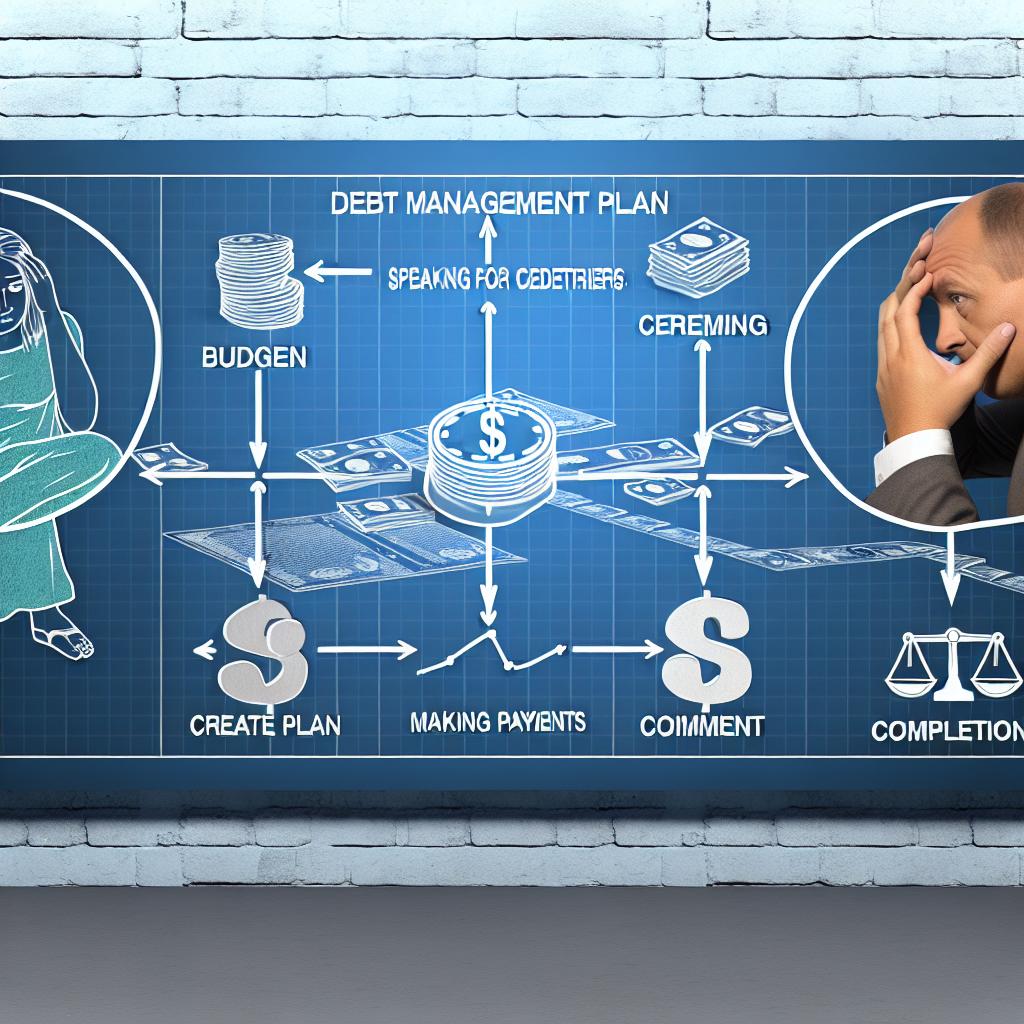Understanding Debt Management Plans
A Debt Management Plan (DMP) is a well-organized repayment program that aims to help individuals manage their unsecured debt more effectively. These plans are most often administered by credit counseling agencies, which work to consolidate a person’s multiple debt payments into a single, more manageable monthly payment. Unlike a debt consolidation loan where you receive a loan to pay off all your existing debts, a DMP offers a coherent strategy to repay your creditors under mutually agreed terms without taking on new debt.
How a Debt Management Plan Works
Upon enrolling in a DMP, the credit counseling agency plays a pivotal role by negotiating with your creditors. These negotiations aim to potentially reduce interest rates or waive certain fees. Once agreeable terms are reached, you start making one consolidated monthly payment to the agency. The agency then distributes these funds to your respective creditors according to the agreement. This structured repayment process can extend over several years, largely depending on the total amount of debt owed and the specific terms negotiated by the agency.
Eligibility and Types of Debts
Debt Management Plans are primarily suited for unsecured debts, which include credit card balances, medical bills, and personal loans. They typically do not extend to secured debts such as mortgages or auto loans. Additionally, tax obligations are generally not covered by DMPs. The eligibility for enrolling in a DMP can vary based on your unique financial circumstances and the willingness of your creditors to participate in the plan. Creditors’ participation can significantly affect the terms and effectiveness of the DMP.
Benefits of a Debt Management Plan
Participating in a Debt Management Plan offers several distinct advantages:
Simplified Payments: A DMP consolidates various debt payments into one single monthly payment. This simplification can significantly ease the management of your financial obligations, allowing you to focus on making consistent repayments.
Reduced Interest Rates: One of the primary benefits of working with a credit counseling agency is the potential for reduced interest rates. Agencies can negotiate with creditors to reduce these rates, which in turn can substantially decrease the total amount of debt paid over time.
Waived or Reduced Fees: Late fees and over-limit charges may also be subject to reductions or eliminations, which can help alleviate the overall financial burden you face.
Improved Credit Score Over Time: A critical benefit of successfully adhering to a DMP is the potential improvement in your credit score. As debts are consistently paid down, your creditworthiness is enhanced, reflecting a responsible approach to debt management.
Considerations Before Enrolling
Before deciding to enroll in a DMP, it’s crucial to assess whether this option aligns with your long-term financial goals. Here are a few key considerations:
Commitment: Debt Management Plans generally require a long-term commitment, typically ranging from three to five years. It’s essential to ensure that you can commit to making regular payments over this period, as consistency is critical to the plan’s success.
Closing Credit Accounts: To participate in a DMP, you may be required to close or freeze existing lines of credit. This can impact your financial flexibility considerably, so it’s vital to assess how this action aligns with your overall financial strategy and needs.
Not a Quick Fix: It’s important to understand that DMPs are not immediate solutions. While they can be highly effective over time, they require patience and consistent effort to see tangible results.
Finding a Credit Counseling Agency
Choosing a reputable credit counseling agency is a critical step. Look for organizations that are accredited by established authorities such as the National Foundation for Credit Counseling or the Financial Counseling Association of America. Conduct thorough research and verify the legitimacy of these agencies. Ensuring they are non-profit and have a good standing with consumer protection agencies is crucial in making an informed choice.
By comprehensively understanding and carefully considering the structure and implications of a Debt Management Plan, individuals struggling with debt can take meaningful steps towards achieving financial stability. Additional resources and guidance can further aid in making well-informed financial decisions. For more information, you might consider exploring resources such as the Consumer Financial Protection Bureau, which provides valuable guidance and tools to support informed financial decision-making.
